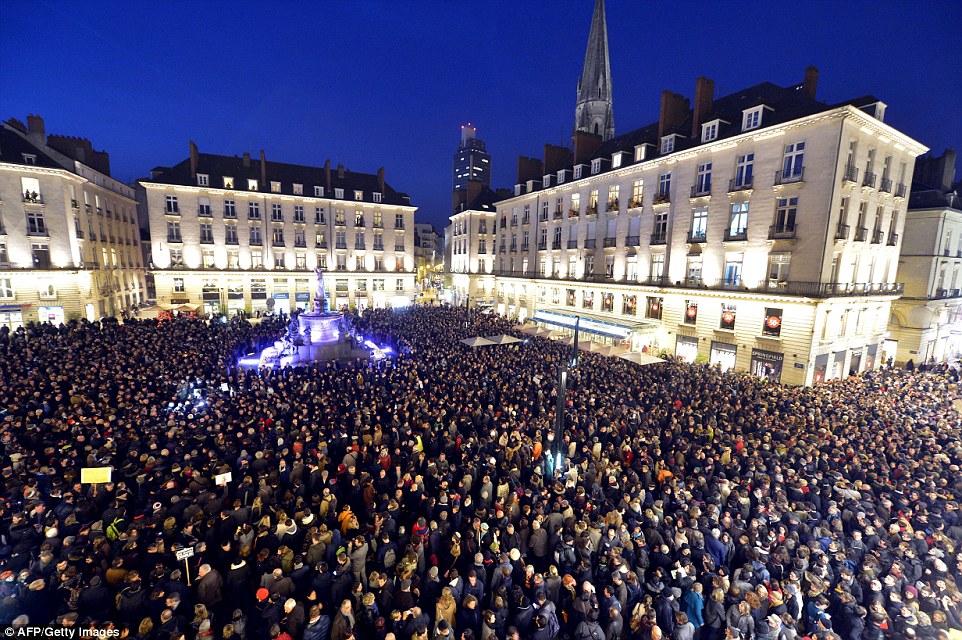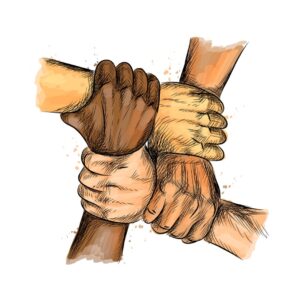Religion and Violence: Where the Media Gets it Wrong

I would like to dedicate this post to the victims of last week’s attacks in France. These killings were atrocious crimes against humanity and our hearts go out to all the families whose loved ones were taken from them so unjustly.
As is always the case after tragedies like these, international news coverage has been absolutely dominated by the events that unfolded in Paris. The religious beliefs and affiliations of the perpetrators have been of particular interest in this coverage. However, I believe wholeheartedly that when it comes to religion (especially Islam) and violence, the majority of the media is promoting the wrong discussion.
For days now.the majority of the news coverage I have seen has been saturated with discussions of so-called “radical Islam” and its relationship to terrorism and violence. A number of truly devout Muslims have been shown having to defend their religion as it is continuously, and falsely linked to horrible acts of violence. This happens despite the fact that these faithful individuals are able to denounce such violence directly in the words of their holy book, the Qu’ran. This is where we taking a wrong turn in our discussion.
Violent people have been attempting to align themselves with religious groups for as long as such groups have existed. What is troubling to me is that it seems like whenever the religion of Islam is involved too many people take these false alignments far too seriously.
The Ku Klux Klan has committed savage murders, all in the name of white Christianity. Many of us have known this for long time, and yet no one has declared a war on “radical Christianity.” This is because it is easy for us to understand that the acts of Ku Klux Klan are in no way linked to teachings or beliefs that make up Christianity.
So yes, the attackers France claimed to be acting in accordance with Islam, but in reality violent massacres like those committed in France have nothing to do with religion. Real religion is a peaceful thing.
Television writer Aron Sorkin presented an alternative theory about the factors of extremism in this clip from The West Wing:
I tend to agree with Sorkin, the true hallmark of an extremist is profound intolerance and anger. Those who are angry see the rest of the world as adversaries and often develop intolerance of other people’s ideas. Those who are intolerant eventually become further isolated. A person who lacks the ability to understand others’ points of view might be limited in their ability to form meaningful relationships. Isolation and loneliness would probably be some of the most powerful catalyst for cult like devotion to a certain set of extremist ideals, simply because the believing in these ideals gives the follower something to feel connected to and further validates the individual’s existing sense of intolerance. Therefore if we wish to combat terrorism, we must combat isolation by building meaningful connections across societal lines
Extremist are defined by their emotions and their ideas, not by the religions they claim to follow. When the news media repeatedly emphasizes the supposed connections between Islam and terrorism they might as well be defining Islam as an enemy. Defining the world in adversarial terms only perpetuates violence. So no matter what your religion, political affiliations, nationality, socioeconomic status, or gender, there may be a chance for you to contribute to the global fight against terrorism. In order to do so, simply consider the idea that fighting terrorism is less about defining our enemies as it is about expanding our network of allies and friends. Change can happen one person, one and one of kindness at a time.







